














JOIN 150+ SUPPLY CHAIN EXECUTIVES



















Welcome to the October 2023 edition of CHAIN Magazine!
e are thrilled to bring you four fantastic interviews and an expert Q&A this month in CHAIN, the go-to digital magazine for the latest global supply chain, procurement and logistics news and stories.
For our cover interview this month, I speak with Clint Westbrook, Chief Operating Officer, Steve Byrne, Vice President of Concepts and Standards, and Paula Lopez, Director of Purchasing at Areas USA. We discuss the supply chain optimisation, sustainability strategy and cultural transformation underway at the company as it strives to transform the travel hospitality experience, with excellence at the very core of how it operates (p6).
I sit down with Tyler Linderman, Vice President, Strategy & Growth at Bricz, who shares rich insights into the company’s strategic partnerships, supply chain transformation and technological innovation propelling the company forward with its global expansion (p24).

Yoseph Arsala, Head of Operations and Supply Chain at OffLimits elaborates on how the company manifests its motto of ‘Breaking the rules – starting with breakfast’. We dive into the passion, innovation, supply chain strategies and approach to sustainability catapulting the company from the brand-building phase into a chapter of growth (p42).
Ted Farrace, VP of Procurement at Groupe Geloso shares insights into the family-owned company’s culture, where the values have remained a consistent bedrock since 1961. Ted elaborates on the supply chain strategies and operational innovation behind the fully integrated beverage company’s growth and success (p74).
I speak to Rigo Van den Broeck, Executive Vice President of Cybersecurity Product Innovation at Mastercard for a Q&A session on the innovation and technology driving the company’s cybersecurity operations (p56).
Our features this month cover the latest real-time humidity sensing technology for supply chains (p64), new geo-location software set to shake up the delivery industry (p90) and an exciting partnership expansion delivering digital transformation to life sciences and chemical supply chains (p104).
Last, but by no means least, we are thrilled to welcome Gerardo Aguilar of Syngenta Group as the third guest in our new recurring feature In the company of… (p114).
We hope you enjoy our latest edition. As always, if you would like to be considered as an interviewee or if you have a story for us to include, please do get in touch.
speak to Clive Westbrook, Paula Lopez and Steve Byrne at Areas USA about channelling excellence while transforming the









Clint Westbrook, Chief Operating Officer, Steve Byrne, Vice President of Concepts and Standards, and Paula Lopez, Director of Purchasing at Areas USA open up about the company’s core values and holistic approach to transformation.
 Urth Caffe & Bar is located in Terminal 1 at Los Angeles International and features fresh, healthy foods by sourcing local, sustainable and organic ingredients.
Urth Caffe & Bar is located in Terminal 1 at Los Angeles International and features fresh, healthy foods by sourcing local, sustainable and organic ingredients.
Its subsidiary, Areas USA, operates over 140 restaurants and retail stores in ten major airports and 13 travel plazas in three states.
The company’s US locations in major international airports include Houston Hobby, Los Angeles, Minneapolis-St. Paul, Miami, Chicago O’Hare, Newark Liberty, Hartsfield-Jackson Atlanta, Orlando, Detroit and Indianapolis. Areas USA also operates travel plazas along the central highways in Florida, Maryland and West Virginia.
Areas USA champions the group’s belief that travel is more than just a destination and travellers have diverse motivations and expectations for their journeys. The company specialises in understanding these needs and adapting services and culinary
Every year, Areas Worldwide welcomes 348 million customers to its 1,900 restaurants and points of sale in 10 countries around the world.
The Spot, set to open in late December at Houston Hobby Airport, is an island-casual spot that features mouth-watering burgers, fresh seafood and hand-spun shakes.

Yard House, set to open at Houston Hobby’s Central Concourse late next year, will feature the best qualities of this national sports bar favorite: rotating taps of imported, craft and specialty ales along with great food and classic rock music.
offerings so their guests have memorable experiences when they travel.
Here to talk about the supply chain optimisation, sustainability strategy and cultural transformation underway at Areas USA are Clint Westbrook, Chief Operating Officer, Steve Byrne, Vice President of Concepts and Standards, and Paula Lopez, Director of Purchasing.
Clint begins by describing the company’s culture and core values that guide its direction as a business.
“Areas USA is driven by four pillars, what we call the Areas spirit,” begins Clint. “The four pillars are excellence, belonging, responsibility and collaboration. We channel the Areas spirit to our team members, our partners, our guests, the people who encounter our company and, more broadly, the planet.”
As Paula explains, excellence is the overarching component of these values and the company culture.
“All of our core values are focused on excellence,” adds Paula. “Excellence in how our teams operate, excellence in our
partnerships and excellence for our guests. We make sure that everything we do brings the best out of each team, not only internally but also our landlords. We want anyone that is going into our stores, brand outlets or encountering our company to experience this excellence as well – it is paramount to our company culture.”
“It's a spirit of trying, as a company, to make the people who are working in the field much better within themselves and so we get the best out of them,” adds Steve. “The goal that we've instilled
over the past year is to exceed expectations: first, of the guest, second, of each other, third, of our partners out there at the airports and motorways and of the people in the field. Here at our central Support Centre, we want all the people involved in our operations to see us as their ultimate support system so they can happily go on with their day and deal with their staff and their guests and not worry about the factors we can handle for them.”
Clint joined Areas USA in March 2023 and in his first week had the privilege of meeting Oscar Vela, CEO of Areas Worldwide and other top-level directors.
“The most fascinating takeaway I had from that early meeting was hearing Oscar talk about Areas as nimble and humble,” recalls Clint. “We never want to start a conversation with our clients or

“Supply chain optimisation is a major component in Areas USA’s endeavours to manifest excellence in its complex and expansive operations”
partners with the word ‘no’ – we will always look at possibilities. It defines how we achieve our goals and engage with people to get things done. Excellence is the key term in our vernacular because it’s what we strive for, nimbly and humbly, in every way.”
Supply chain optimisation is a major component in Areas USA’s endeavours to manifest excellence in its complex and expansive operations.
“We have a complicated supply chain since we are not a company with just one brand which is easy to execute across the country,” explains Paula. “At Areas USA, we have over 150 different locations. We have multiple vendors, national brands, local brands and our own brand – our supply chain tends to be more complicated than a typical supply chain. So optimising our supply chain is always our priority. How we do this falls into seven categories.
“Closely related to this are the second and third components, where we are investing in technology and tech integration. These optimisations are helping us send data insights directly to our vendors, making sure invoices are electronic and performing supportive tasks so the people out in the field can focus more on what they need to be doing, like serving our guests, rather than focusing on the administrative side.
“First of all, we are a data-driven organisation. We look at the data we analyse, ensuring that everything we're doing has a cause and effect. This helps us to make decisions quickly and effectively. We are very lean and agile.
“Our technology development in the past two years has helped us with the fourth and fifth components of our supply chain optimisation: category management and inventory management. Optimising our category management involves making sure that we have the right products, that we are profitable and that we have what the guest is expecting us to have in our assortment. Inventory management entails working with our operations team to ensure outlets have the right inventory on hand and we are not keeping money on the shelves. What we have developed is a highly effective rotation system by working with the distributors, so we have the correct deliveries, right when we need them.

“Belonging is having everyone feel like they're part of the Areas family. That's the culture that we promote within the organisation: one Areas”
Clint Westbrook, Chief Operating Officer


“Tying into this is the sixth aspect of our supply chain optimisation, which focuses on having great relationships with our partner vendors. We are constantly looking at how we can improve our company performance as a whole, but part of this is working with reliable partners that are aligned with our strategies as well.”
Steve elaborates on the final component of supply chain optimisation at Areas USA: sustainability. He emphasises that supply chain optimisation has sustainable components focused on the company’s ESG credentials at a strategic level – but sustainable optimisation is tangible, measurable and realistic at Areas USA too.
“Areas is the third largest provider of travel meals in the world and this means we have a duty to be responsible,” says Steve. “We are doing everything that we can, with an emphasis on realistic strategies, to preserve some of the best things that the Earth gives to us. Water is one of those precious resources. We have developed an advanced water flow system for our motorway rest areas. The amount of water flowing through those sites in a
24-hour period is staggering. But we've built an innovative water flow system that's been engineered specifically for our outlets. In the system’s first year of being operational, we will have used 1.6 million gallons of water less than we did in the previous year.
“Every year, we do a Worldwide Challenge and our valued partner Danone is crucial in helping us roll it out. We challenge our operators to bring incremental sales increases through innovative and sustainable optimisation projects. Whichever airport or travel plaza optimises the most incremental revenue gains is sent to Barcelona to receive a prize.
“Food is also a precious resource. We have a new system we brought in called ‘Crunch Time.’ It involves
“Every year, we do a Worldwide Challenge and our valued partner Danone is crucial in helping us roll it out. We challenge our operators to bring incremental sales increases through innovative and sustainable optimisation projects”
“Areas is the third largest provider of travel meals in the world and this means we have a duty to be responsible”
Steve Byrne, Vice President of Concepts
detailing exactly what we have to prepare, in terms of food needed for the day, according to what the sales are going to be. This means we haven't got staff prepping food all day for us, only to throw it away the next day. That waste has happened for generations in this business.
“To complement the Crunch Time system, we've actually removed all the rubbish bins out of our kitchens. Instead, we use a 10-gallon see-through container where employees can see everything that’s been thrown away, and they can see it all day. This has fostered a sense of responsibility within the workforce. It's dropped our costs by two-tenths of a per cent. That doesn't sound like a lot but multiplied out across the number of sales we do, it's an awful lot of money. The offshoot is we're not buying anywhere near as many plastic garbage bags now either.
“Another major sustainability incentive we’re rolling out that touches every part of the business is a project called ‘Operational Excellence,’ where we are concentrating on the very basics of what our company stands for. So far, it’s helped us reduce our food waste even further and consider our labour performance by
exploring how we can best place people in places or roles that are comfortable for them, to best bring out their potential.”
Areas USA’s focus on its people and workforce extends beyond the Operational Excellence project, and the company is embarking on holistic culture transformation to promote diversity, equality and inclusion.
“As we think about the pillar of people and team members, a very large focus for us is a sense of belonging that really does cross over all of those areas of diversity, equality, inclusion,” says Clint. “Belonging is having everyone feel like they're part of the Areas family. That's the culture that we promote within the organisation: one Areas. It doesn't matter which country you work in. It doesn't matter where you come from. We have an incredible record for the number and percentages of the population that we represent. A total of 68 per cent of Areas’ employees are from diverse and inclusive groups of people. Almost 60 per cent of our leadership team are women. We feel very strongly about opportunities. We feel very strongly about the chance for our family to grow internally. We champion the idea of ‘promote from within’: 75
to 80 per cent of our promotions come from within the Areas family. That leaves us a healthy 20 per cent where we can attract talent to come to the organisation, to be part of that family, and bring new ideas and new thoughts with them.
“We really focus hard on the whole person, because it's not just about work. Work is important but it must exist alongside the priorities of the health and wellbeing of each individual. We encourage
people to make sure they have a good balance, that they have the opportunity to improve themselves and grow with the organisation. This then allows them to also be present for their family, their friends and their community, and to be able to give back because they're healthy, they have that wealth and they have the opportunity for career growth as well.
“In years gone by, it was often work first and everything else came
second. And in a lot of cases – a distant second. But we like to think about the people that work for us as being able to work so they can live, versus living to work. We're really excited about how that pans out at Areas and it’s a source of great pride.”
Clint elaborates how the company’s excellent work in promoting diversity, equality and inclusion exists within a broader cultural transformation at Areas

“All the way from Barcelona to Miami and beyond, the focus has been around how we redefine experiences in line with the four pillars of excellence, belonging, responsibility and collaboration,” explains Clint.
“When we compare pre- to postpandemic circumstances, there is never going to be a larger cultural
shift we will see. Whether this is the culture of work or family, we believe making them inclusive is the number one priority. Number two, we want to give everyone the opportunity to work in the environment that best suits them – whether it be here in the Support Centre, for our remote workers or the people on the ground in our outlets. We are geographically spread out, so it makes sense for us to be able to encourage and also support people working in other parts of the US or around the world, yet still be connected to what we're doing.
“Since we became a private organisation, we're able to make those decisions quicker in a nimble and humble way so we can recognise what's important for the people that work for us and be sensitive to their needs.”
Looking ahead to the future, Areas USA has ambitious goals to double its revenue as a company in the next three to four years. Steve reiterates how achieving this goal depends on doing things differently and innovatively while pursuing growth.
hopefully going to be coming into play in the next 12 months, that’s ventless – there’s no gas or fumes,” shares Steve. “It will create a great workplace for the staff and a terrific experience for our guests. But it's also wonderful for our clients at the airports or travel plazas because they're not having to restructure their buildings.
“We opened two new restaurants in Houston recently with menus that exceed your typical airport expectations. When you visit an airport, nine times out of 10 there’ll be regular breakfasts with bacon and eggs, and you might have a hamburger at lunchtime. We're trying to break that mould. So in Houston, on our dinner menu, we're serving dishes involving more exotic ingredients from mussels to shishito peppers –we’re trying to wow people and exceed expectations for clients and customers. We believe breaking the mould and exceeding expectations in the process will help us grow, gain more business, attract new customers and bring back existing ones.”
“One example is we have a design for a restaurant, that's
Paula adds that interdepartmental collaboration to increase sales in specific locations, in a healthy way, is crucial to the growth strategy at Areas USA.

“Increasing sales is important, but it has to be in a healthy, profitable way”
Paula Lopez, Director of Purchasing
“Increasing sales is important, but it has to be in a healthy, profitable way,” says Paula.
“This stems from our category management with current partners, but also arises from the work done by our purchasing department: making sure we’re finding ways to potentiate new items, exploring new ideas in collaboration with the other departments, but also ensuring
Steve loves reading autobiographies and non-fiction books and highly recommends Unreasonable Hospitality: The Remarkable Power of Giving People More Than They Expect by Will Guidara.
“Unreasonable Hospitality is absolutely eye-opening and thought-provoking,” says Steve.
“I love to read on the porch on a Sunday afternoon, spend time with my family and go fishing –that keeps me out of trouble for a couple of hours. I’m also a mad Manchester United supporter and follow them religiously.”
we achieve good profitability with those items.”
Clint emphasises the importance of focusing on local sourcing and cuisine when pursuing expansion and growth.
“We love expanding into new areas, but first and foremost we focus on the local aspect of that region of the country,” says Clint.
Unlike Steve, Paula prefers to read fiction as a means of taking her mind off the demands of daily life. But she also finds tremendous value in exploring the overlap between being a mother and being a leader.
“Something I’ve been focused on lately is how do I lead my team, from a female perspective and from a mother’s perspective,” shares Paula. “There are a lot of analogies between me being a mother and having a team. As a mother, you’re constantly asking yourself how to be better for your children and make them happy. The same applies to my team: how do I improve as a leader and make sure they are happy?”
“What are the local chefs doing? What are the local restaurants doing? Asking these questions means we can bring that representation into our airports and our plazas. From there, there’s a ripple effect, from that local outlet to the region, that travellers like to see.
“Our business development team has more than tripled in size in
the past year, so we can put the right people in place and drive opportunities. We have no cookie-cutter plan for growth, we customise and localise it to be more effective but also respectful to the regions we serve.”
For further information and to learn more about Areas USA, visit us.areas.com.
Paula recognises she is very target-driven, which not only manifests at work but also in her new running hobby. She is training for a half marathon and finds the progress, structure and goals very motivating.
“For me, it’s about being aware of these different parts of myself and blending them together to get the best of all of them.”
Clint relishes the chance to identify and nurture talent.
“I like to mentor people and watch as they succeed,” says Clint. “Mentoring allows you to both pass on knowledge and experiences but also receive
different perspectives and new ideas from your mentees.”
On a more personal level, Clint loves to travel and spend time with his family.
“I think travel creates the opportunity to have memories as opposed to having material things that are just that: material things,” Clint emphasises. “The experiences you can have in travel, from meeting terrific people to doing great things, has been a passion of mine for a long time.
“I'm a strong believer in family values. We just welcomed a new granddaughter to the family and her name is Sophie-Grace. I love to see the family grow and be successful – and I can’t wait to someday look back on it all.”

Tyler Linderman, Vice President, Strategy & Growth at Bricz shares insights into the supply chain transformation, technological innovation and strategic partnerships underpinning their exciting global expansion.

ith a vision to develop, grow and drive solutions for complex supply chains, the company’s experts work with some of the world’s largest retailers, distributors and brands to generate value, explore opportunities and deliver omnichannel excellence.
Founded in January 2014, Bricz started life in the US as a warehouse management system (WMS) implementation firm and its first customer was US retail giant The Home Depot. The company’s initial focus gravitated towards
technology enablement around Manhattan Associates solutions –eventually diversifying into working with multiple supply chain providers including Körber, Blue Yonder and Oracle.
Since then Bricz has expanded its service provision to include order management system (OMS), transportation management (TMS), labour management system (LMS) and – most recently – robotics and automation technology solutions. In 2020, Bricz opened an office in the UK and turned its attention towards building a European client base.

Bricz is a leading supply chain solutions provider passionate about creating outstanding customer experiences.

Here to shed light on the strategic partnerships, supply chain transformation and technological innovation underpinning the growth and momentum at Bricz is Tyler Linderman, Vice President, Strategy
& Growth.To understand the drive and direction at Bricz in 2023, Tyler rewinds a few years and describes how in the past decade the company developed its WMS solutions to go deeper in this offering but also widened the breadth and scope of its services to include OMS, TMS, LMS and robotics and automation consulting as a complex supply chain solutions provider.
“We are big believers in partnering with best-of-breed technology providers in our core areas of the supply chain systems,” says Tyler. “I lead our growth and corporate strategy. So that includes strategic initiatives on how we grow as a company but also our partnerships and alliances with various supply chain system vendors and other partners throughout the industry.”
In 2020, Bricz opened its first UK office to expand its operations to Europe.

“We're located in the UK but obviously we work across Europe with customers in Belgium, Holland,
Spain, across all of Europe, in fact. We’re very excited to begin expansion within Central and Northern Europe in the coming year as well to better service our customers in the European Union,” adds Tyler. “We work a little bit differently in Europe compared to the US, as we have a more focused approach currently as we grow, similar to how we started in the US. But we started in a similar way with WMS implementation and consultancy, since expanding into automation strategy and other supply chain solutions provision. When we started the office in the UK three years ago, we recognised that logistics and distribution systems
had evolved from being in a place where everyone just thought it was a WMS and another automation provider over the top. What we've realised over the last few years is that the world has changed a lot and supply chains have become a lot more complex with regards to the number of suppliers businesses have to interact with and the number of systems that interact with those suppliers. We're here to provide a bit of a comfort blanket between the customer and that complexity.”
Opening a new UK office three years ago in the midst of COVID
“It actually turned out to be a useful time to extend our operations in the UK, because we had a bit of time to get together with the right kind of customers that that you need when you're expanding your organisation into a new region,” says Tyler.
“Since then, we've increased the size of our team with the addition of key consultants, subject matter experts and administration team members. We've done that with help from our US and India counterparts, identifying global clients whom we work with, and

obviously building out a client list of our own in the UK as well. That began with WMS implementation and consultancy support and we continue to focus on consulting services around strategy, selection and implementation of WMS and related technologies.”
While the European team was getting off the ground with the UK office and growing Bricz’s European operations in the past three years, Tyler shares how the US side of the company wielded technological innovation to lean into its own set of challenges during this time.
“2023 has been exciting, right?” begins Tyler. “We’ve seen different demands this year than there were even in 2022 or 2021 when we had to adapt to the COVID-19 pandemic. During the pandemic, customers shifted focus heavily towards e-commerce, so we spent a lot of time enabling things like
buying online and then picking up in-store or improving e-commerce processes within the warehouse using some of those traditional WMS features like pick carts, voice picking and batch picking methodologies.

“But I would say recently here in the US, our focus shifted a little bit away from e-commerce and back to how do we get in front of the stores and how do we get product efficiently through the stores. It's now a question of how we pull together the first, middle and last mile for both store networks and our e-commerce networks for our customers.
“There’s been a shift back towards the ‘omnichannel’ buzzword, which
“It's become abundantly clear that the identification of value is becoming second nature to everybody because they have to identify the areas of their organisation that provide the most value”
was all the rage in the late teens, especially in 2018 and 2019. In 2023, we’ve had to ask how we improve our overall functionality if we look at the supply chain tech market as a whole, but especially in North America.

“The other industry development that I think is interesting is in the WMS space. More and more companies are evaluating what they need to do from a technology standpoint as they go forward. So your major WMS providers and our partners are almost all fully cloudbased SaaS products, which is a big shift in the marketplace in the WMS space from where we were five or seven years ago. The other
interesting factor is it's the last technology to move to the cloud because it is a real-time processing engine. When you're operating an order management system, you have more buffer for processing of the order. If an order takes eight seconds to route, there's minimal impact on the end user. But if a picker is picking a product and it takes seven seconds to return the screen back to the user, and they're doing that 200 times an hour, that's a bigger impact. So at Bricz, we're helping customers evaluate what the path forward looks like at these large companies in the WMS space by exploring how they can reduce risks with cloud technology and ensure that their processing is capable. Post-COVID there have been new challenges and new conversations, but still well within our realm of expertise, which are a lot of fun to have.
“All our customers have asked for and had to demonstrate a huge amount of agility. It's become abundantly clear that the identification of value is becoming second nature to everybody because they have to identify the areas of their organisation that provide the most value. This goes for their systems, their suppliers, their clients and their customers.”
With all the recent developments, demands and opportunities arising
in the supply chain industry, Bricz is looking to the future as a company and plans are in place to build on the momentum in 2023 so far and carry it forward into the years to come with transformation and technological innovation at the centre of its growth strategies.
“Our growth plans are twofold,” summarises Tyler. “The first is global growth and our teams in Europe and India are obviously a big part of that. We have established a strong base here in North America but more and more of our customers are asking if we can support them globally. So we are looking at how we take the same great execution we developed in the US and roll it out worldwide and conversely learn what our Europe and India teams do exceptionally well and apply that in North America. The team in the UK and Europe more broadly is a big piece of that growth. Part of this is expanding with existing customers that have European operations, but also supporting new customers in Europe. We also have a team in India, where we've done an exceptional job of leveraging our India team members to support European projects as well. The time zones are fairly similar, so the European team works with our India team very closely. The other nice thing about how we're set up at Bricz is

“With all the growth we’ve achieved in the last five years, we’ve still managed to maintain a company culture which is very entrepreneurial, close-knit and energetic which is something we celebrate here at Bricz”
Tyler Linderman, Vice President, Strategy & Growth

our ability to work as one company across three broad global regions.
“We've put collaborative methodologies in place to facilitate global cooperation among our teams which we’ve been able to effectively execute this year. It provides a lot more flexibility for our customers since they get the same people talking to them – whether it's a warehouse in the US, Europe or Asia. So we're working with a few customers on a truly global scale with our support and our value proposition for them is it doesn't matter where in the world your distribution centre is located, we
can still offer top-level support and services. Our teams are going to talk to each other and customers can expect efficiencies of scale across their teams by engaging with our people, who are all WMS experts reading from the same page.”
Here, Tyler adds that efficiently managing global growth has been a crucial determinant of the recent success at Bricz.
“I think the thing that our people have noticed since COVID is the amazing way Bricz has managed to leverage its skills matrix globally. We've got UK people who work on
Mexico projects. We've got people in India who work on Netherlands projects and US people working on UK projects. I think we all thought that we worked internationally or globally before COVID, but now we’ve built a completely different way to operate. That's what we love to see – it’s the way Bricz can leverage being a truly global company by using the skills of all of its people worldwide.”
continents. “Every Friday, we come together with the leads from each of our regions to discuss strategy,” says Tyler. “Say we have a project opportunity, we ask each other how we can best pool our resources to maximise it in the best interest of our clients. That speaks to one of our key value propositions and our key core competencies at Bricz: excellence in customer service. Our CEO Ram Gopalakrishnan asks us all the time, ‘Are you listening to the customer? Are we answering the question that they're asking?’ Because we truly believe, across the globe, there's a lot of opportunity for supply chain advancements and our initial projects are yielding fantastic results through global collaboration.”
The second layer of Bricz’s growth plans coalesces around robotics and automation technology solutions, particularly within the warehouse.
Tyler stresses that Bricz grew organically from the ground up as a company in the past decade, which means their teams are closeknit even if they operate on different

“More and more companies are asking us to help evaluate where they’re at with robotics and automation technologies,” expands Tyler. He explains there are new trends emerging in the labour market that impact supply chain companies around the world.
“It is becoming more difficult to find team members who can perform the roles you need, but
also find enough of these staff to execute processes with growth in mind,” explains Tyler. “We’re finding that more companies are looking to take those valuable skills that people have and put them in decision-making jobs and utilise robotics for repetitive movements or tasks. Many of our customers would rather have one person work on quality audits or vast value-added service processing, rather than just pick up a pallet and move it from point A to point B. At Bricz we’re exploring how we can help them achieve this end goal with the right software and hardware.
“Our growth plans are built around expanding robotics and automation practice in the supply chain industry, both here in the US and globally. We have invested heavily in conference trade shows like ProMat and MODEX here in the US, and then

“Our growth plans are built around expanding robotics and automation practice in the supply chain industry, both here in the US and globally”

more recently we went to a show called IntraLogisteX in the UK.
“We are more than just a WMS implementation firm. We're a supply chain solutions firm. A big piece of that is extending into somewhere that may be slightly outside of our comfort zone, and
driving change in robotics and automation tech is where we’re heading. The best part is we're not a traditional system integrator or reseller of those solutions. So we take an agnostic approach as we evaluate and find solutions for customers since we’re not resellers of any one solution. Again, this goes

back to our ethos of listening to the customer and doing what's right for them, finding the truly best solution for them and then pushing that forward.”
As Bricz expands globally and into the robotics and automation spaces, partnerships and collaborations are
essential to the company’s growth strategy. Tyler harkens back to the early days when Bricz launched and explains that the company soon realised many incredible supply chain vendors already existed.
“We never had and do not have any intention to build or rebuild our own

version of these systems,” explains Tyler. “From day one, partners have been fundamental to us –particularly collaboration with companies at the leading edge, the best best-of-breed vendors offering the latest technology solutions.
“For example, Tecsys is a warehouse management and order management vendor. They
offer other solutions as well, but mainly we're partnering with them on the warehousing side of things. Tecsys offers a compelling niche value proposition for the healthcare market here in North America, as a best of breed solution when it comes to healthcare systems. If you consider large hospital systems and the delivery of medicines or equipment, they have unique functionality built
In a world where supply chains are increasingly automated, adaptability is your key to success. Tecsys Elite™ is an end-to-end supply chain platform – including ERP, OMS, WMS and TMS – designed to give you complete control and the flexibility to evolve when you need it.
Take the next step:
Read the Ultimate Guide to Warehouse Automation READ GUIDE
“Tecsys established themselves at the forefront of the healthcare industry in that area, so it makes a lot of sense for us to partner with them”
into their WMS specific to that industry.
“They’ve established themselves at the forefront of the healthcare industry in that area, so it makes a lot of sense for us to partner with them so that when we come across an opportunity in that marketplace, we've got the ability and right contacts to partner, execute and implement effectively.
“It's incredibly important to our growth and operations that we identify the right partners to align with strategically but also ensure that we have common goals so we can drive success together.”
Offering his perspective from the European side of the company, Tyler reiterates that as Bricz has embarked on its exciting period of global expansion alongside the broadening and deepening of its service provision, it has maintained a fantastic company culture while embracing the change that comes with strategic partnerships, supply chain transformation and technological innovation.
entrepreneurial, close-knit and energetic which is something we celebrate here at Bricz,” says Tyler.

To learn more about Bricz, visit their website bricz.com.
“With all the growth we’ve achieved in the last five years, we’ve still managed to maintain a company culture which is very
Tyler is looking forward to attending Manifest Vegas at Caesars Forum, Las Vegas, US from February 5-7th 2024 and representing Bricz at this unique conference where a traditional expo hall style event meets speaking sessions, panels, networking opportunities and other engaging experiences for supply chain industry leaders.
Yoseph Arsala, Head of Operations and Supply Chain at OffLimits provides insights into the company’s mission to reinvent the way we consume cereal.


OFFLIMITS
ere to elaborate on how the company manifests its motto of ‘Breaking the rules – starting with breakfast,’ is Yoseph Arsala, Head of Operations and Supply Chain at OffLimits.
Yoseph begins by describing the passion imbued into the company’s launch and journey to date.
“Off Limits is a better for you, fun cereal brand,” says Yoseph. “Founded in 2020 by our fearless leader Emily Miller, she created this brand with a goal to reinvent the way we consume cereal. We're 100 per cent plant-based, non-GMO, gluten-free and we avoid using any artificial ingredients.”
Yoseph joined OffLimits in 2021 to help the company scale up and

today he oversees the operations and supply chain, from point of origin, at raw material suppliers to manufacturing and outbound customer logistics.
Expanding on the company’s journey to date, Yoseph reiterates the importance of Emily Miller’s visionary leadership as CEO and Founder and lessons learned during the COVID-19 pandemic.
“Emily's background is in the breakfast category,” explains Yoseph. “She literally wrote the book on breakfast – she’s authored a cookbook on breakfast and helped world-renowned chefs develop breakfast events. She launched OffLimits combining her love of food and art, with eyes fixed firmly on being the next generation cereal brand for kids.
IS A COMPANY BUILT ON THE BELIEF THAT THE CEREAL MARKET HAS STAGNATED FOR DECADES AND CONSUMERS ARE CRAVING NEW PRODUCTS WITH FRESH FLAVOURS, BUT WITHOUT THE ARTIFICIAL INGREDIENTS, AND A STRONG EMPHASIS ON SUSTAINABILITY.

 Emily Miller, CEO and Founder of OffLimits
Emily Miller, CEO and Founder of OffLimits
“The brand first raised capital, produced and launched in 2020. It was tough to navigate, especially due to COVID-19. But the big creative vision was to shake up cereal while creating an organic emotional connection with our investors, suppliers and early customers. By the beginning of 2022, we started to gain more momentum by way of interest from premium regional grocery chains and distributors. During this time there were supply chain delays across all industries and lead times were incredibly long, but we were able to form a cohesive team internally to communicate clearly with our partners and also execute at a high level. Not only were we able to fill all our orders, but we also were able to reformulate and improve our flavour profile as well during this time.”


OffLimits not only champions the concept of balancing deliciousness and healthiness, the company also prides itself on how it strives for sustainability as a brand as well.
“At OffLimits, we're on a mission to prove it is wholly possible to do well and good as a business,” says Yoseph. “We have a clear plan towards our dream of being a fully regenerative snacking company one day. We work hard to ensure we use the best ingredients we can find from trustworthy and equitable
suppliers. At the same time, we ensure that our sales partners appreciate our sustainability goals in order to support the mission.
“As a small company right now, we can't do everything in one go. So while we first started by focusing on our ingredients, we're proud to announce that as of summer 2023 we're shifting our cereal cartons to fully recycled board that is compostable. It's a first step towards a complete packaging overhaul with people and planet in mind, which we hope will set a new standard in the cereal aisle. On top of that we're currently and constantly
reviewing our sourcing to improve sustainability across our entire supply chain. It's a journey that we're committed to right now.”
Now the company has spent the past two years creating its products and building its brand, Yoseph says there’s a tangible excitement at OffLimits looking ahead to the future.
“In 2023, we finally got our big break we have launched nationally at Target and Sprouts,” says Yoseph. “That's just so far this year. We're planning to spread the

goodness globally into Whole Foods beginning in January 2024. Beyond 2023, we'd like to grow organically with the customers that we have, while also focusing on marketing and expansion specifically by region.
“With regards to our supply chain, we're shaking things up this year to prepare for future growth. We've established a new relationship with a co-manufacturer that will decrease our lead times and increase capacity. At this stage, we've also decided that we're growing too fast to continue buying raw materials on the spot market. So I've been going out and signing supply contracts with both ingredient and packaging suppliers for us to be able to secure material at a fixed price for the foreseeable future, not only helping us increase our margin and lower our cost of goods sold, but also forging strong commitments from suppliers who are able to fill our demand.

"AT OFFLIMITS, WE'RE ON A MISSION TO PROVE IT IS WHOLLY POSSIBLE TO DO WELL AND GOOD AS A BUSINESS"
In the midst of this exciting new chapter at OffLimits, Yoseph explains that innovation, supply chain optimisation and new technology are crucial to the company’s strategy to not only maintain the momentum of the business but build on it and catapult it to new levels of success.
“We're a small but mighty team of four – the epitome of an innovative

startup,” insists Yoseph. “For us, innovation is truly a team effort and everyone brings their own unique creativity to the testing table. We're constantly innovating every single day and we have weekly meetings about new product ideas. Not only are we toying around with new cereal flavours, but we're also ideating products that will break off on each of the new categories. We don't really see cereal or OffLimits products
FMI’s mission is to provide creative flavour and ingredient solutions by partnering with our customers and leveraging the strength of our worldwide ingredient network. We combine industry experience, creativity, flexibility and quality control to meet our customers’ needs.

"WE JOINED FORCES WITH ONE OF OUR SUPPLIERS, FLAVOR MATERIALS INTERNATIONAL (FMI)
EARLY ON, AND IT WAS AN IMMEDIATE, POSITIVE AND CREATIVE COLLABORATION"
as just a breakfast item, but as an omni-snack. All of our future product brainstorms abide by a ‘Play With Your Food’ mentality. We joined forces with one of our suppliers, Flavor Materials International (FMI) early on, and it was an immediate, positive and creative collaboration. We get to nerd out with them regularly on global ingredients and wild flavours to create all our omni-snack cereal creations that we bring about. FMI share the same vision as us for responsible sourcing and no artificial ingredients.
“The toughest challenge with innovation is keeping the pipeline
open to new products and ideas, but also to be able to trial these ideas without carrying a huge financial burden. We do this by strategically scheduling trials and working with our robust R&D Team at FMI, who are capable of listening to our outlandish flavour ideas and matching them scientifically. One example of our latest product innovations is our new cereal glitter. It's the only cereal glitter available on the market. It's an edible glitter you can sprinkle on your cereal, turning the milk blue. It went viral on social media and we’ve seen a lot of influencers playing around with it. We're looking to grow that product line this year and will officially launch it into retail later this year as well.”

As OffLimits explores new flavour profiles, products and innovations, Yoseph reiterates how supply chain optimisation and developing new technological solutions are major enabling forces as the company scales up its operations – but they need to be deployed efficiently and effectively.

“Operating in a startup environment, optimisation is of course something that we look forward to, but we can only explore it when we reach certain thresholds,” explains Yoseph. “At OffLimits, supply chain optimisation is becoming more and more of a priority as we scale. I've been working with food and beverage startups for the past eight years now. It

"AT OFFLIMITS, SUPPLY CHAIN OPTIMISATION IS BECOMING MORE AND MORE OF A PRIORITY AS WE SCALE"


really varies by category, but there is a certain threshold that once crossed, you can start transitioning your focus to optimisation. Prior to reaching that threshold, you're basically in survival mode. We're now at a point here at OffLimits where we have enough purchasing power to bid out our business across the entire supply chain. This allows us to not only lock in

favourable terms on ingredients, but also within manufacturing and distribution channels. For us it's not just about price, it's about building strong, meaningful relationships with suppliers that are able to grow with us. It also means we can enter sustainability conversations with a larger force of purchasing power and trusted retailers behind us.

"FOR US IT'S NOT JUST ABOUT PRICE, IT'S ABOUT BUILDING STRONG, MEANINGFUL RELATIONSHIPS WITH SUPPLIERS THAT ARE ABLE TO GROW WITH US"
“We've also begun investing in new supply chain technology and we recently onboarded with an enterprise resource planning system (ERP) that will help us centralise information and business processes,” says Yoseph. “We plan to use this organisation to plan better, sell through inventory efficiently

and communicate with our suppliers effectively. We were managing everything in spreadsheets prior to this. Now we have a central information system for all of our orders, all of our inventory and we're also able to pay our vendors in one place.”
According to Yoseph, strong partnerships have catalysed these

optimisation efforts and are of paramount to the future growth plans at OffLimits. But what does the company look for in these partnerships?
“First, it's about attention to detail and second, it’s about intention – we look for partners who offer us the
ability to scale and can commit to our mission,” summarises Yoseph. “Early on when I came on board, we were working with some suppliers that had just been recommended to us by other people in our networks. Those suppliers weren't real stakeholders in our business. We've now transitioned to suppliers that

Yoseph is passionate about the food industry and feels incredible gratitude to the mentors who have guided him along the way in his career.
“It's super important to start from the ground up, have quality mentors and build a strong network of resources that you can rely on for support in the process,” says Yoseph. “I started my career after graduating with a bachelor's degree in finance, and unwillingly I went directly into a kitchen of a frozen food manufacturing plant.
“I had no idea what I was in for – I took a job that was recommended to me by someone I trusted who was an executive in the food industry. After working
in the kitchen for a few months, I moved into production, warehousing, planning and procurement. Fast forward a few years, I was leading operations for food and beverage brands across many different categories. Starting on the assembly line was probably the most valuable experience I've ever gained. I'm now able to walk into a factory and engage with employees on the ground, and I'm also able to work with suppliers and understand what their operations look like. It's helped me select and develop long lasting relationships for the brands that I work with. But it also means I can call the many mentors or teachers I've had along the way to ask them for advice. Connecting with and learning from industry veterans has been extremely valuable for me.
“I’m incredibly grateful to all my mentors but there are three in particular I want to thank. Emily Miller has taught me how to think outside
really believe in our brand and aren't so worried about their bottom line as they are growing with us, more as partners. Those are the type of people that I want to work with. I want to collaborate with suppliers who understand that we're here to shake up the entire cereal category and are constantly checking in on

us to make sure they can help us achieve that goal in any way that we need along the way.”
For further information about OffLimits and to explore the nextgeneration of omni-snack products in its portfolio, visit www.eatofflimits.com.
the box, be creative and she's a terrific and unique leader to work for. I have a former mentor in Lenny Leibovich, who is the founder of Pre®, a grass-fed steak startup, who approaches business with his investor hat on and has taught me how to look at things quantitatively and qualitatively. The original mentor of mine is Carlos Angulo. He's someone I grew up around and he’s the man who started me in the kitchen and recommended getting into the industry. I couldn't thank him enough for starting me where he did even though at the time, I wasn't too thrilled about it.”


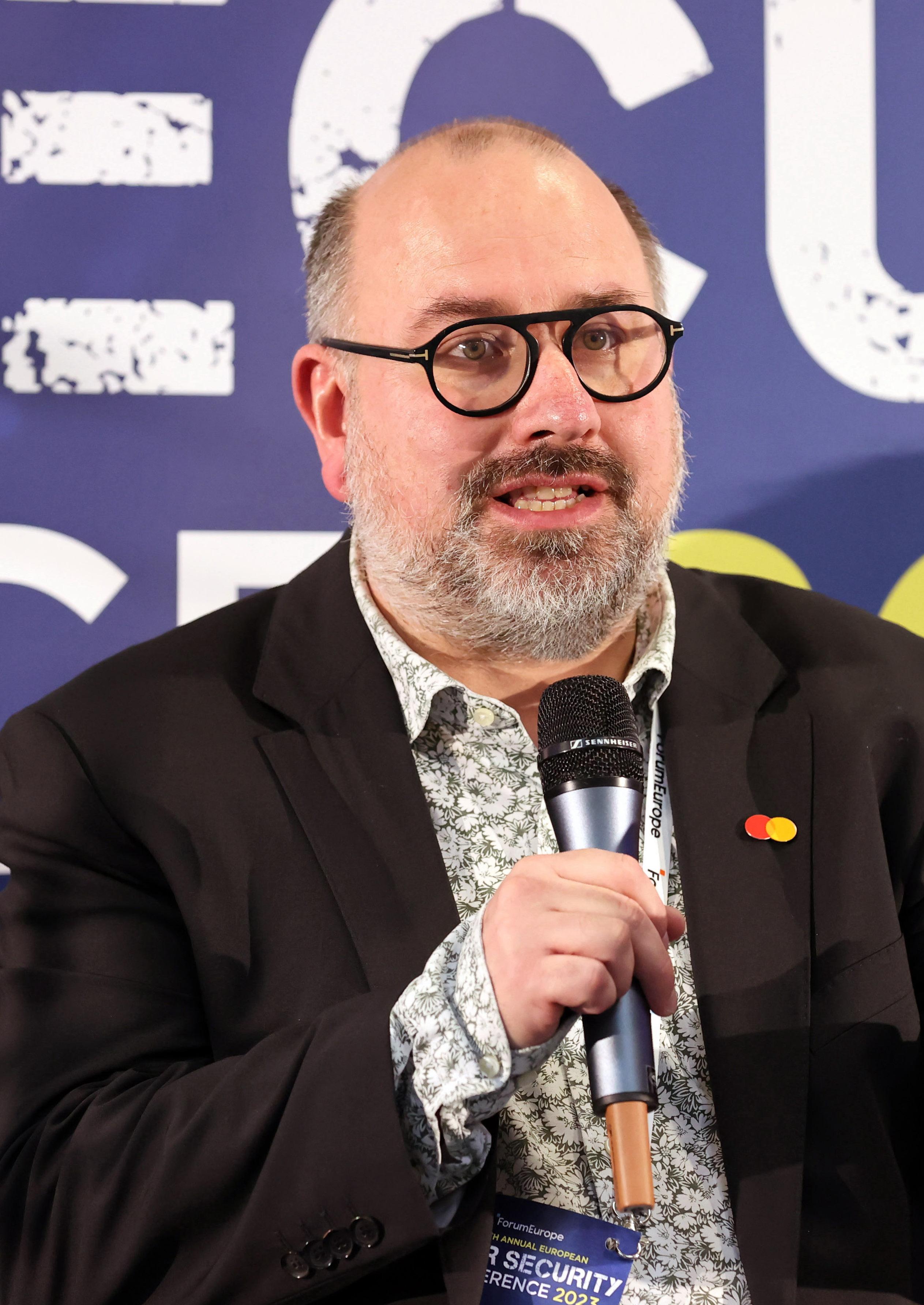
We sit down with Rigo Van den Broeck, Executive Vice President of Cybersecurity Product Innovation at Mastercard to discuss the technology and innovation driving its cybersecurity operations.
astercard is a global technology company in the payments industry with connections across more than 210 countries and territories. Its mission is to connect and power an inclusive, digital economy that benefits everyone, everywhere by making transactions safe, simple, smart and accessible.

Beyond payments, Mastercard blazes a trail with its cybersecurity solutions and fraud prevention to market insights, products and best practices.

We sit down with Rigo Van den Broeck,
ExecutiveVice President of Cybersecurity Product Innovation at Mastercard Cyber & Intelligence (C&I) for a Q&A session.
Please can you tell us a little bit about how your part of the business fits into Mastercard’s wider operating structure?
We are living in an era of significant technological change and the digital ecosystem has transformed how our businesses are powered: trust is the glue that binds this all together.
Keeping trust central to our relationships with our customers is vital because there will always be those who seek to take advantage, harming innocent businesses through cyberattacks and extortion: this can be devastating for businesses.
This is where Mastercard cybersecurity fits in. Just as the risks businesses and other organisations face grow and evolve, so do our efforts to combat them.
"Cyber risks are evolving and so always to stay two Rigo Van den
Today – thanks to our evolving technology – it is possible to defend against threats you don’t expect, and before they happen.
By leveraging AI, we can use automation to diagnose and repair potential vulnerabilities in cyber defences.
Can you please elaborate on the core pillars of your Cybersecurity strategy?
Cyber risks are continually evolving and so our approach is always to stay two steps ahead. We are continually improving our solutions to protect businesses from the threats of today and tomorrow.

To do this we have our three core pillars of Mastercard Cybersecurity: Assess, Protect and Organise.
First, we assess a business's cyber risk exposure identifying where there may be vulnerabilities in their supply chain. We do this, using our RiskRecon technology, by continually monitoring transactions and other data trends. We are constantly innovating to stay ahead of emerging threats.
We protect businesses from cyber-attacks thanks to our
are continually our approach is two steps ahead"
den Broeck
innovative solutions which help secure the digital ecosystem. At Mastercard, we are constantly innovating to protect businesses across the world from cyber threats. Earlier this year, we acquired Baffin Bay Networks, a Sweden-based technology company, and using our AI threat protection we can now stop an attack in under 15 seconds.
Finally, we organise trust in the digital ecosystem by analysing data at a macro level. We use our AI-powered technology to help stakeholders enhance their cybersecurity across their business and supply chains. This in turn raises the performance of the tools and teams that work together, keeping businesses and governments safe and protecting trust for all.
This does not just mean cyber risk but evolving to tackle multidimensional risk too. We are moving to protect not only against cyber issues, but also against issues such as privacy breaches, financial outages and those in the environmental, societal and corporate governance space (ESG) too.
believe we need to work together to continue building on it.
There are three main things that are exciting me now. The first is the perpetual advance of technology. While we may be focused on AI today, we know that in the coming years we will see further changes and development through the advent of 6G, quantum computing and web3 technology – and each will change the digital world in new, exciting and challenging ways.
Secondly – and this links to the previous point – it’s the fact that bad actors and criminal groups are constantly, and will always be, innovating. This means that we
What are you most excited about in your line of business in the coming years?
At Mastercard we have decades of experience tackling cybercrime – we

need to stay two steps ahead. This doesn’t only mean we need to put new solutions into the market; we also need to monitor trends and technological advances to protect consumers, businesses and governments against future threats.
A third and equally exciting area of cyber security is the inextricable link between human behaviour and technological innovation.
Both depend on the other: in the world of cybersecurity it cannot be simply technology acting on its own or a simple case of human endeavour – the two must remain intertwined. This allows us to go
further faster, building a safer digital world for all.
How is Mastercard addressing supply chain risk and empowering its customers in the process?
We begin by looking at the entire digital environment including the supply chain to identify the weak spots. This includes third-party and fourth-party vendors, which are used by third-party vendors.
This provides a comprehensive view of supply chain risk and vulnerabilities which allows businesses to better understand their exposure to cyber risk and address critical issues quickly.
Our evaluation process includes potential risk from all sources, which includes companies within the supply chain that might not be under direct monitoring by agencies.
This thorough risk assessment process incorporates entities that may be overlooked by more traditional monitoring methods and provides businesses with a comprehensive assessment of risk allowing them to proactively address risks from a less obvious source.
The final step in this process is to identify potential access points for

attackers. We provide insights that help organisations identify potential access points or chinks in the armour that could be exploited.
This insight empowers businesses to not just address existing vulnerabilities but also address areas that could be exploited in the future.

How does innovation and technology underpin your team’s approach?
Imagination is the key ingredient for innovation.
In this hyperconnected world, it is vital that we innovate to stay two steps ahead of bad actors who wish to do us harm and destroy that trust.
We leverage new technologies to provide convenience to our customers and to create and enhance new and existing
products and services. This is an exciting part of what we do.
We use AI and our understanding of how an attacker thinks and what actions they take to create solutions that increase cybersecurity and reduce the risk.
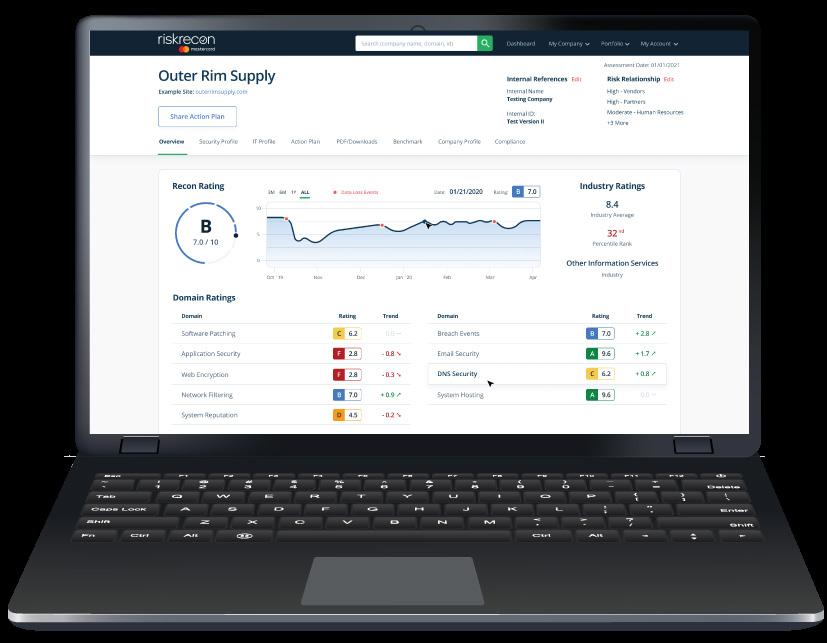
a multi-layered and principled approach to cybersecurity.
Our evolving efforts focus on building security for all types of digital interactions, helping to ensure the overall stability and security of the broader digital ecosystem.
Where do strategic partnerships play into your team’s operations?
The digital economy has expanded rapidly, with two-thirds of the world's population – 5 billion of us – now connected via digital networks.
It is these networks – and our global partnerships within them – that give us greater resilience, allowing us to share best practices and develop better, more innovative solutions.
This in turn helps keep us all protected against tomorrow's attacks and, most importantly, safeguards trust for us all.
For more information about Mastercard as a company, visit mastercard.us.
We differentiate ourselves by innovating in partnership with vendors and customers taking
To explore the latest Cyber & Intelligence content and resources Mastercard makes available, head over to its Cyber & Intelligence Resource Center.

Wiliot introduces real-time humidity sensing to its ambient IoT Visibility Platform for unprecedented visibility into supply chains.


Wiliot, the Internet of Things pioneer whose ambient IoT Visibility Platform is enabling trillions of “things” to gain intelligence, recently announced it has achieved the breakthrough ability to sense and analyse humidity levels of individual products, in real-time, throughout the supply chain.
By adding humidity sensing to the company's Visibility Platform, on top of Wiliot's existing temperature, location and carbon emissions sensing capabilities, Wiliot has made it possible for companies to better ensure the safety, integrity, freshness and sustainability of moisturesensitive products – end-toend and at unprecedented scale.
Wiliot's ability to enable continuous monitoring down to the product level is unlike any traceability technology available today.

“This is a game-changing technology achievement for supply chain visibility,” says Wiliot VP of Data Products & Algorithms, Thaddeus Segura. “By adding humidity sensing to the Wiliot Visibility Platform, we are transforming the handling of products we all consume and depend on. Now companies can deliver impeccable quality to their customers while promoting sustainability and responsible resource utilisation.”
The Wiliot Visibility Platform connects the digital and

physical worlds through the Wiliot Cloud and Wiliot IoT Pixels, which are low-cost, selfpowered, mass-manufactured postage stamp-sized compute devices affixed to products and packaging.
IoT Pixels continuously and automatically transmit data

“IoT Pixels continuously and automatically transmit data to the Wiliot Cloud via standard Bluetooth devices”
to the Wiliot Cloud via standard Bluetooth devices, greatly reducing the staffing and operational cost of traditional tracking methodologies, while also reducing error rates, waste, mis-shipments, mis-picks and out-of-stocks.
By using the latest technology to efficiently connect any item to the
internet and embedding it with intelligence and awareness, companies can create more efficient, profitable and sustainable supply chains.
With this latest launch, Wiliot engineers have now introduced to IoT Pixels a tiny membrane that detects humidity in the air.

When an IoT Pixel is exposed to different humidity levels, the information is relayed wirelessly to the Wiliot Cloud. In the cloud, this humidity data is combined with temperature and location data to generate insights and timely alerts for staff that can better optimise supply chain operations.


 Wiliot Humidity
Wiliot Humidity
Tag
“Produce stays fresher longer, reducing the amount wasted due to rot and spoilage”












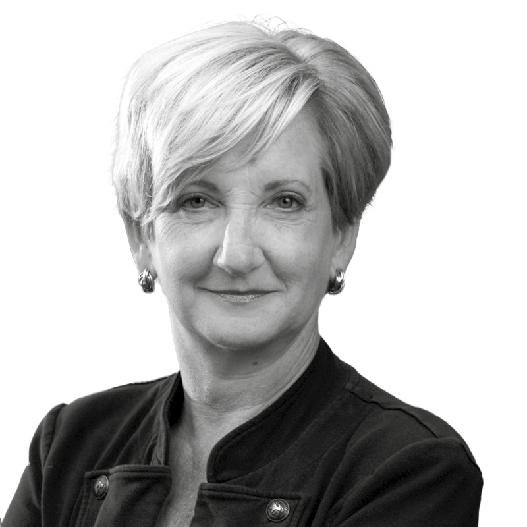

“Based on this new humidity data, companies can now track, in real-time, the relative impact of environmental conditions on moisturesensitive products – to improve their freshness, quality, safety and integrity,” explains Thaddeus. “Food retailers can apply freshness insights to their operations to ensure the freshest, ripest products are sold first, while healthcare companies can monitor the safe handling and storage of medicines and health commodities. The Wiliot Visibility Platform gives businesses an entirely new level of insight into their supply chains.”
Products, from produce to pharmaceuticals, have different humidity handling requirements. The Wiliot Visibility Platform helps ensure compliance from producer to distributor and retailer to pharmacy, delivering significant benefits for companies and consumers. Produce stays fresher longer, reducing the amount wasted due to rot and spoilage. Medicines, which

must be stored at specific temperatures and humidity levels, stay safe. Vaccines, which require precise handling and environmental conditions to deliver their intended health benefits, remain effective.
“Wiliot, and the ambient IoT, are changing the way the world operates – helping businesses transition to fully automated, completely transparent and increasingly sustainable supply chains,” concludes Thaddeus. “Now, with humidity sensing added to our platform, we're establishing a new baseline for product freshness, quality, and safety – which will pay significant dividends for businesses and consumers alike.”
Wiliot is currently working with many of the world's largest companies across retail, logistics, apparel, CPG and pharmaceuticals on a variety of ambient IoT projects.
Learn more at wiliot.com.
Source: Wiliot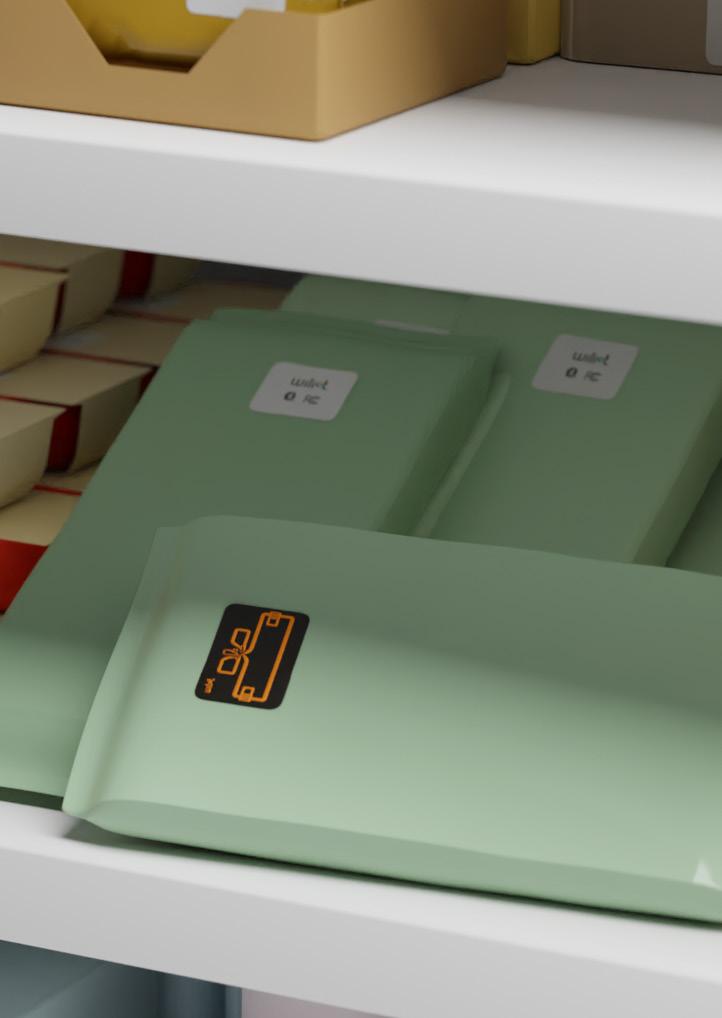
Ted Farrace, VP of Procurement at Groupe Geloso discusses the values and supply chain strategy behind the fully integrated beverage company’s success.





Founded in 1961, Groupe
Geloso is a family-owned beverage company based in Laval, Canada. The business has a broad portfolio of wellestablished proprietary brands such as Clubtails, Johnny Bootlegger, Poppers and Pepito. It also has partner brands such as Bacardi, Bavaria, Boston Beer and Caribe, to name a few.

roupe Geloso handles everything, including R&D, innovation, production, packaging, marketing, sales and distribution of its products. With a commanding presence in the North American market and developing markets in Europe and Asia, the company is relishing its growth and success which can be traced back to its strong values and consumer-first approach to business that have been in place for almost seventy years.

Here to share insights into the supply chain strategy and company values behind Groupe Geloso’s operations is Ted Farrace, VP of Procurement. Ted oversees Groupe Geloso’s raw materials, packaging and operations to ensure production flows smoothly. Ted explains that Groupe Geloso places great emphasis on the company values that were forged in the 1960s and remain relevant to this day.
“Our values are respect, teamwork, communication, collaboration and integrity,” says Ted. “These are the guiding principles that underpin Groupe Geloso and they have served us since the company launched almost seventy years ago.

“The journey began back in 1957 when one man, Vincenzo Geloso, left Italy with his wife and two children, Nicolangelo and Antonio, to settle in Montreal. Vincenzo’s third son, Aldo, was born in 1960 and he is now the company’s President.

“Vincenzo arrived in Canada with an idea and a plan: to supply grape juice to Italian immigrants who wanted to make their own wine. Eventually, he secured the first permit to make wine in Quebec and that’s where it all began to take shape for Groupe Geloso. Since then we’ve expanded and evolved to become a leading readyto-drink beverages company – although we do still offer some wines as a nod to our historic roots and how we got to where we are today.

So, how has Groupe Geloso maintained its growth and commercial success on its journey so far?

“Partnerships are crucial to our evolution,” begins Ted.

“Every year we achieve double digit growth, always with a focus on developing our proprietary brands. The other element is enhancing our production. We use the latest equipment and technology, and this is a great source of pride for us. Here in Canada we do our own distribution, so we're always looking at the best and most efficient way to deliver but elsewhere, for example in the US, we work with our threetier distributor system, a different route to market but efficiency and effectiveness remain vital.
“The other major element to our evolution as a company is considering the consumer. We develop continuously so the customers always want to know what’s coming up next. At Geloso, innovation is key because it keeps us afloat, refreshes our offering and satisfies our customers in the process. We never sit still!”
Groupe Geloso constantly innovates its existing brand portfolio while also adding new product lines and actively seeking partnerships to keep its offering fresh and consumers coming back for more.
partnerships, such as Bacardi and Boston Beer,” says Ted. “We are presently importing Twisted Tea from the USA and producing Truly Hard Seltzer at our facility in Quebec for the Canadian market. Basically, what we do is we develop and we innovate our current product line, while building new partnerships to innovate their lines as well and take them to new markets.”
The changes to the company’s portfolio have been developed alongside production and packaging innovation, where prioritising quality while keeping costs low has been imperative to maintaining double-digit growth at Groupe Geloso in recent years.
Ted recalls starting at Groupe Geloso almost 15 years ago, when the company had 20-30 people working on the line to bring a product from beginning to end using semi-automatic production methods where most of the work was done manually.
“We have our core proprietary brands which we use as a foundation to build on with
“We’ve gone from producing 100 bottles per minute back when I started, to producing up to 1,000 bottles or cans per minute today,” says Ted. “We’ve developed our production and packaging
lines beyond recognition as we’ve grown, enabling us to produce higher volumes, and more quickly, over the years. We went from running one shift to three shifts, quadrupling our production capacity through innovating our processes and using the latest, high-quality equipment as well.
“Our owners are not afraid to invest in the company and they welcome new ideas or creative suggestions. We are incredibly proud of our process and the fact our products have won more than 100 industry awards speaks volumes. We are also proud to be among the top 80 beverage companies in North America.”


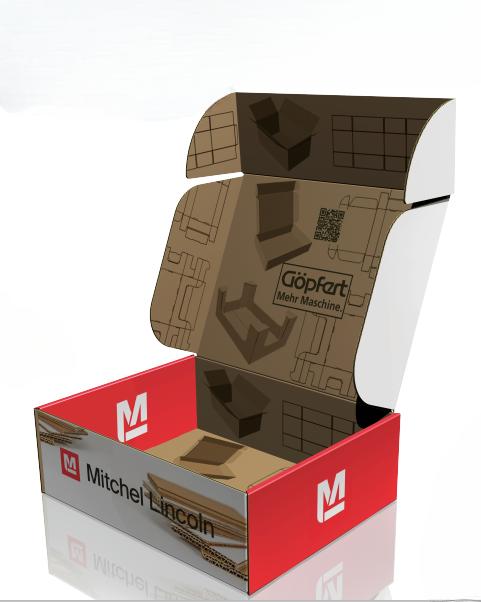

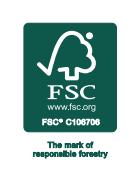


Groupe Geloso’s success with consumers spurred these innovations in its production line, but as Ted explains this needed to be matched with development in the company’s distribution strategy to keep up with the booming market activity.
“We went from having a couple of satellite warehouses where we would bring stock in distribute from there, to now where we work with several 3PL providers and other partners to assist us with these higher distribution demands,” says Ted. “We have a major distribution centre here in Canada and we have developed a drive-through racking system to increase efficiency and volumes so we can work with first in first out packing.
“Distribution in the US has evolved as well. We forged multiple partnerships and built new channels so we can strategically
move our product in a smart way. These collaborations are essential to keeping costs down but also ensuring that our distribution network operates smoothly and effectively.”
Ted’s focus on raw materials, packaging and production at Groupe Geloso means he is heavily involved with optimising these processes and the company’s approach to procurement with sustainability in mind.
“Our partnership with Mitchel Lincoln is invaluable to us because they provide us with high-quality sustainable packaging materials,” says Ted. “The cardboard that we use from them is made from 100 per cent recycled material. They are FSC certified, which means 85 per cent of their recycled material comes from post-consumer materials and 15 per cent comes from post-industrial materials.
“Our partnership with Mitchel Lincoln is invaluable to us because they provide us with high-quality sustainable packaging materials”
“We also keep on working closely with our terrific glass suppliers Ampak to reduce the weight of the glass for our products. This is not always easy because if we have beverages with some pressure, we need to make sure that the glass can sustain the pressure. Ampak produces our glass with new pressing technology that means the glass is distributed evenly, so it is stronger and doesn’t break so easily.
“All our bottles are refillable, up to 10 times, and they are all recyclable at the end of their lifecycle. It is important to us that we collaborate with companies like Ampak
to ensure our products are packaged in the most sustainable way possible.”
Overarching the innovation in production and sustainable strategies for raw materials and packaging at Groupe Geloso are sustained efforts towards supply chain optimisation which form a core component of the company’s operations.
“We plan, produce and distribute strategically,” says Ted. “We look at what we want to achieve to ensure that our production and planning forecasts are in place
Ampak Inc., is one of the world’s leading manufacturers and distributor of Glass, HDPE and PET with over 60 years of valued experience committed to producing high quality bottles, jars and packaging components servicing industries such as food and beverage, pharmaceutical-nutraceutical, industrial, automotive and health and beauty.

Ampak has manufacturing plants and sales offices located across Canada and with the recent acquisition of Circlepak Inc., we are happy to expand our services to the wine sector.

We invite all our customers to be captivated by our esteemed collection of innovative custom designs which delivers an impeccable quality that goes beyond the expectations of every market segment we service as we aim to take you beyond the possibilities of glass.
Our collective partnership is central to everything we do. After all, OUR BUSINESS IS PACKAGING YOUR BUSINESS.TM
Our Manufacturing Facilities Include:
so we can adjust accordingly. Our purchasing and supply chain hinges on having packaging agreements with suppliers to get optimal pricing, but at the same time we bring in only in what is needed.
“What comes in as raw material, we try to use a min-max method, which is easier because with the ingredients, it's not easy to just bring it on time and it's almost impossible because of the packaging sizes. With everything else, we try to keep a considerable safety stock unit to make sure that we're always rolling, but we try to minimise that as well. In both production and finished goods, there's that safety stock to consider. So even though we produce what we need, we always have a bit extra because there's always a surprise order around the corner.
“The other consideration is we have a large range of products. So we have different can or bottle sizes and shapes, so when our planning team get together, they carefully
consider the seismics and setup times. Once we're working on a certain size or container, we stay with that size to finish off and then move onto the next. That way we save our time and a lot of headaches with change overs.
“We also have a staging area to make sure that the production keeps going. In other words, we have a three-day rolling packaging area to keep the flow steady without interruption.
“A reliable supply chain is crucial to us as it creates synergies, enables us to be agile and helps us bring down operating expenses – making us more profitable. But optimisation and efficiencies are not only coming out of our procurement, planning or production departments. It starts at the very beginning when we conceive a product, when we create it, market it and ultimately bring it to the shelves for our customers. We all work together to make sure that everything that we do is done the right way.”
“Ampak produces our glass with new pressing technology that means the glass is distributed evenly, so it is stronger and doesn’t break so easily”
But it is not only internal collaboration that is important at Groupe Geloso, external partnerships are also essential to the company’s operations and success, Ted explains.
“Strong partnerships are key and the goal I set myself is I want 75 per cent of partners to stay with me for the long run,” says Ted. “Honesty and strong communication are fundamental to this. Whether this is related to potential delays or if a partner thinks we could make savings if we changed how we operate, these are the types of things I want to trust my partners to bring to the table. The other
25 per cent of partners I keep an open mind about alternatives, but in a business like ours it’s that 75 per cent – those staple, stable partners – who are the ones you work together with so you both thrive and benefit from the arrangement.”
Wrapping up our discussion, Ted circles back to how Groupe Geloso is a family-owned business that takes great pride in its history.
“It's a business that started over 65 years ago, but they still have the same values they had since day one. If you speak to people that worked here in the past,

they've always been running the company in the same way.
“The family business is in its second generation of leaders. Three brothers – Nicolangelo, Antonio and Aldo Geloso – have kept the company in Quebec and have a great loyalty to the generations of families who have worked and assisted in the growth of the company. They can go downstairs onto the production line, they know everybody. Groupe Geloso is a great company to work for and I’m proud to be part of it.”
For further information on Groupe Geloso, visit groupegeloso.com.


Ted believes in the importance of keeping a healthy work-life balance. When he’s not spending quality time with friends or family, Ted loves to read biographies – especially about people that overcome adversity or go from nowhere to somewhere. Ted recently started a new hobby, riding motorcycles, which he pursues in his spare time and when the weather permits.









































After two years of beta testing, Naurt goes public with fresh funding to help delivery drivers find optimal parking spots and accurate building entrance location data, ensuring timely and efficient deliveries.



The global “last mile” food and package delivery industry is worth almost $990bn and is facing immense pressures to manage costs and cope with demand.
Helping them deliver on their promise and create operational efficiencies, geolocation start-up Naurt recently announced the public launch of their software which is set to redefine the delivery ecosystem.

Having successfully completed over 80 pilots with a range of organisations, Naurt is launching with a £300,000 funding round from venture builder Founder + Lightning to propel its ambitious scale-up plans.

The Naurt platform is laserfocused on fixing the biggest issue facing delivery drivers: the arduous task of finding the best parking spot and the correct building entrance. By showcasing the optimal locations, Naurt guarantees quicker deliveries, ensuring parcels never get lost or delayed. This innovation not only enhances delivery capacity by 5 to 15 per cent, but it also significantly impacts delivery companies’ gross profit margins by minimising the key industry “stop cost” metric. This measures the number of deliveries made per shift divided by the length of time it’s taken the driver to complete.
organisations, which have reported a 6.67 per cent increase in daily deliveries. This boost, equating to an additional delivery per day for drivers, translates into substantial financial savings for companies, especially when labour costs account for a substantial 40 per cent of delivery service expenses.
Founded in 2020, Naurt has been on a mission to refine GPS tracking accuracy. The company’s unique softwarefirst approach has enabled it to deliver significant business impact and has been recognised by winning Tech Nation’s Rising Stars start-up competition, outperforming 627 others. With a rapidly expanding team, which includes industry stalwarts Lucy Woolfenden, former CMO at Yolt, and Cien Solon, exZilch, Naurt is poised to scale the business.
During its beta testing (the last 18 months), Naurt has collaborated with 83
Jack Maddalena, CEO of Naurt, says, “We see many businesses miss out due to poor levels of location data quality. Now that we have proven our quality of location

“Naurt has unlocked this opportunity for businesses, with the delivery sector being our initial focus”
Jack Maddalena, CEO of Naurt

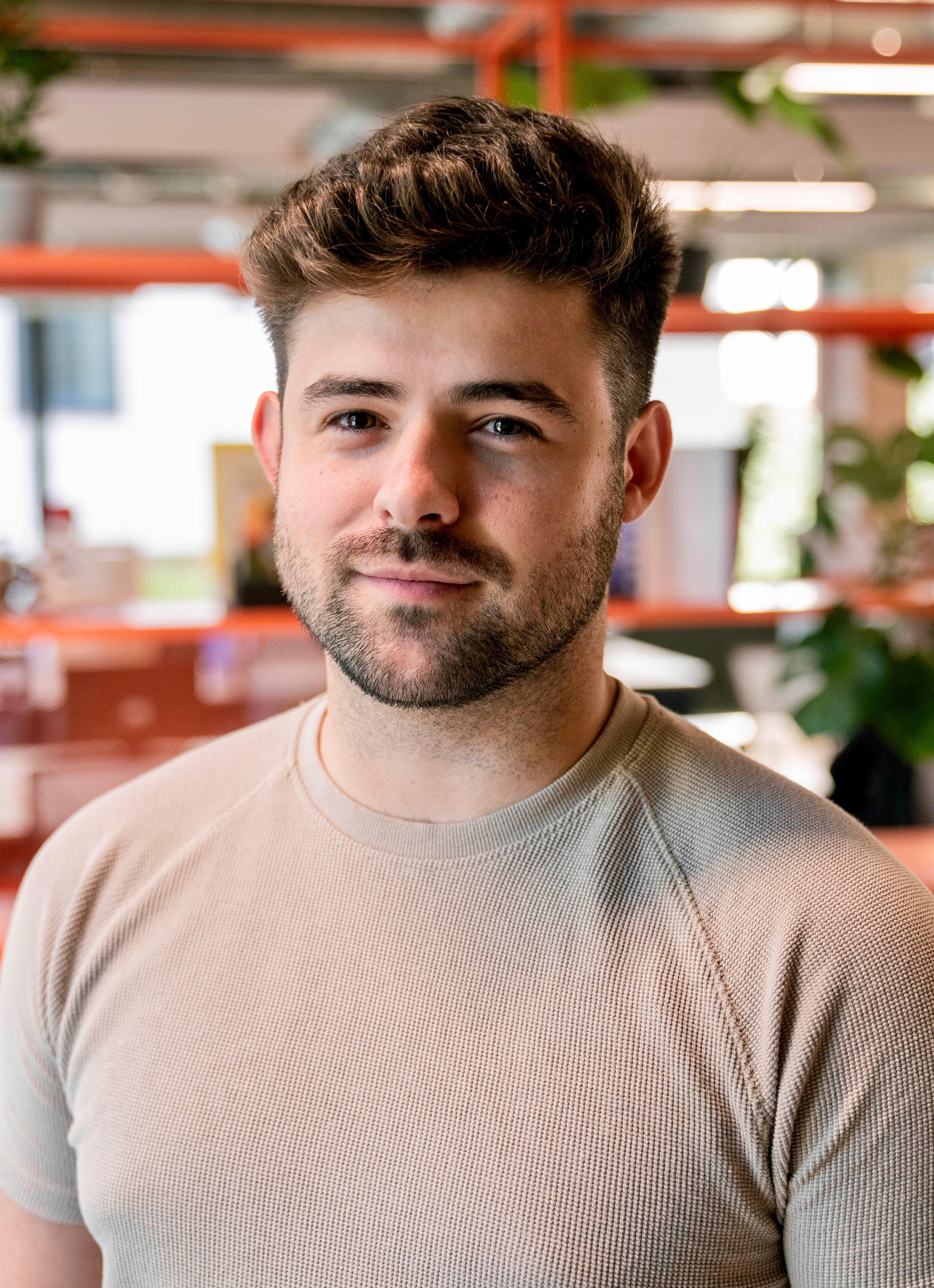


tracking and data, this will lift the constraints and open possibilities for teams. Naurt has unlocked this opportunity for businesses, with the delivery sector being our initial focus. It's become clear that accurate location tracking alone is not sufficient in this fast-paced industry, there's a desperate need for location intelligence in each and every delivery. A lack of which is costing businesses and people time, money and safety. We have created a solution that is able to improve on this without the need for extra hardware. The work we are doing will be transformational for people
and businesses around the world.”

The current economic environment has witnessed a shift from growth to profitability. Final mile companies are striving to streamline operations, making Naurt’s solution increasingly pertinent. Their patentpending software not only ensures efficient deliveries by determining optimal parking spots and building entrances, but it also amasses invaluable data, with over 500 million location points collected in collaboration with global delivery giants.

Recent studies, like the research paper from Washington University, have underscored the need for intelligent parking solutions, highlighting potential savings of up to 27.9 per cent in parking search time. This further emphasises the value Naurt brings to the industry.


“We are confident that Naurt has a globally unrivalled location-tracking solution. Last-mile delivery problems are costing businesses millions each year and Naurt will help slash these inefficiencies,” adds Conor
 Moylan, Chief Investment Officer at Founder + Lightning.
Moylan, Chief Investment Officer at Founder + Lightning.




“Naurt foresees its technology aiding utility companies in asset tracking, potentially revolutionising maintenance protocols”
Looking ahead, Naurt is eager to integrate with numerous delivery companies, aspiring to become an industry-standard software solution. The company vision extends beyond deliveries:


Naurt foresees its technology aiding utility companies in asset tracking, potentially revolutionising maintenance protocols.
Source: Naurt


















Nulogy and OMP are expanding their partnership, offering their combined solutions and services to additional industries to fulfil their growing need for digital transformation of internal planning and external supplier network collaboration.

Nulogy, a leading provider of supply chain collaboration solutions, and OMP, a global software and services company specialising in optimising supply chain planning, announced an expansion of their existing partnership at the end of last month.
he expansion enables the two companies to deliver an enhanced Supply Chain Digital Transformation experience to a new group of industries, including life sciences and chemicals.

First announced in December 2021, the Nulogy-OMP partnership focused on providing solutions for consumer goods and food & beverage companies. The combined multienterprise solution integrates OMP’s Unison Planning™ platform,
which optimises supply chain operations within an organisation, with Nulogy’s solution, which enables real-time, synchronous and dynamic collaboration between global enterprises and their networks of external suppliers, ranging from raw material to comanufacturing and copacking partners.
“We have moved past the era where ‘enterprise’ software focused on internal operations was the sole requirement for running a large business,” says Jason Tham, CEO and

co-founder of Nulogy. “Companies today need to focus on multienterprise operations, streamlining communications and collaboration across complex networks of suppliers and customers. Our partnership with OMP provides the best of both worlds: a world-class enterprise solution from OMP for building robust supply chain plans,

“Nulogy and OMP’s solutions perfectly complement each other”
OMP USA
and Nulogy’s purpose-built multienterprise solution for executing on plans that may include dozens –or even hundreds – of suppliers.”
The announcement extends that partnership to deliver the same benefits to companies in the life sciences, pharmaceutical and chemical industries, triggered
by the interest of many of OMP and Nulogy’s common customers to provide true cross-enterprise visibility for their own value stream analysts and suppliers alike.
“Nulogy and OMP’s solutions perfectly complement each other,” says Philip Vervloesem, Senior Vice President, OMP USA. “At OMP, we

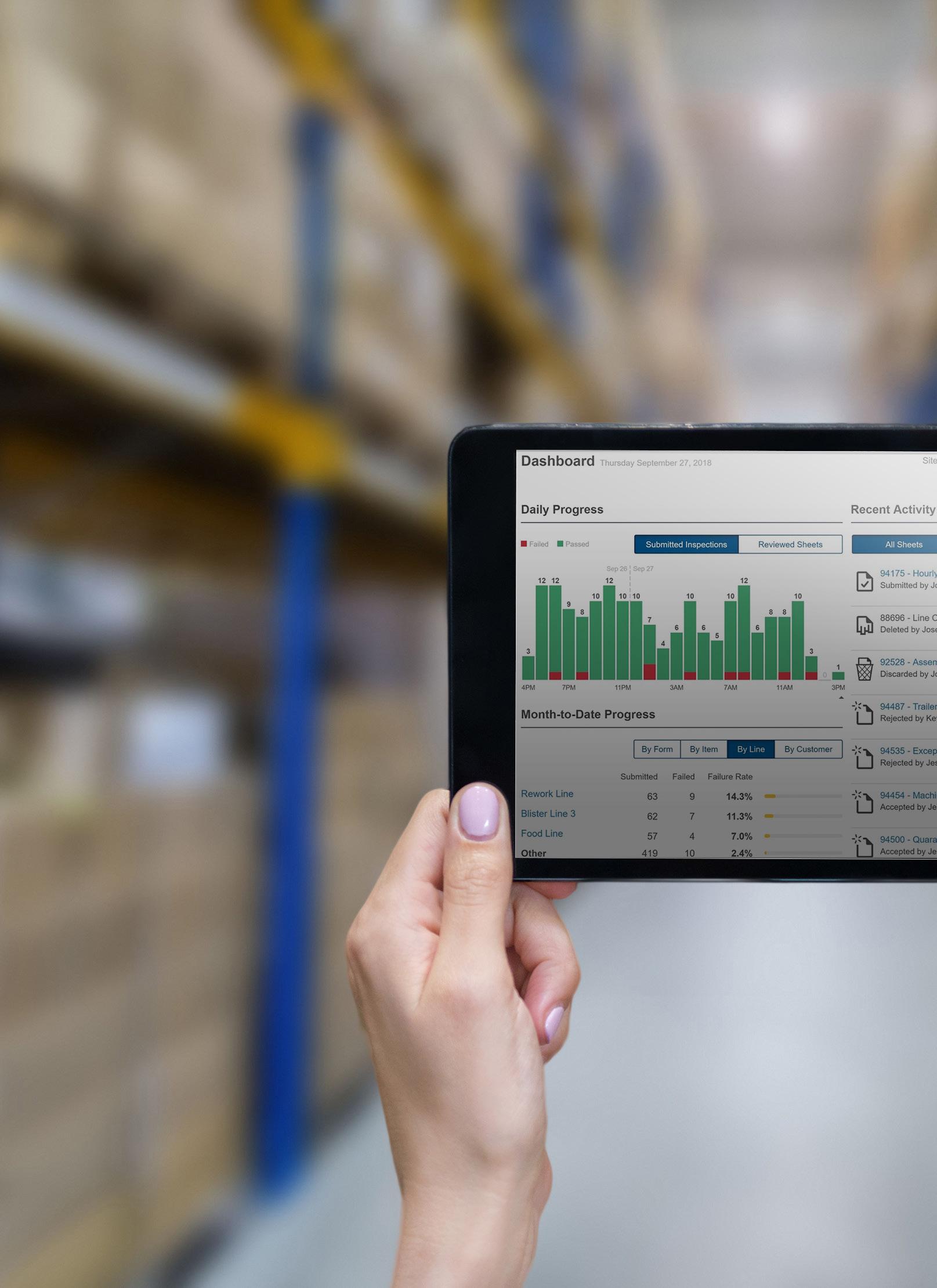
are focused on sensing market priorities and challenges in collaboration with our OMP customer community. Following the example of consumer goods, more industries are now striving to enable visibility into their digital supply chain twin across their partners and integrate supplier information that allows them to respond to disruptions much faster.”
Customers stand to benefit in multiple ways. Planners no longer have to collect information by phone or email, and the increase in data accuracy and reduction of data latency result in a more agile supply chain, where better decisions are made faster.
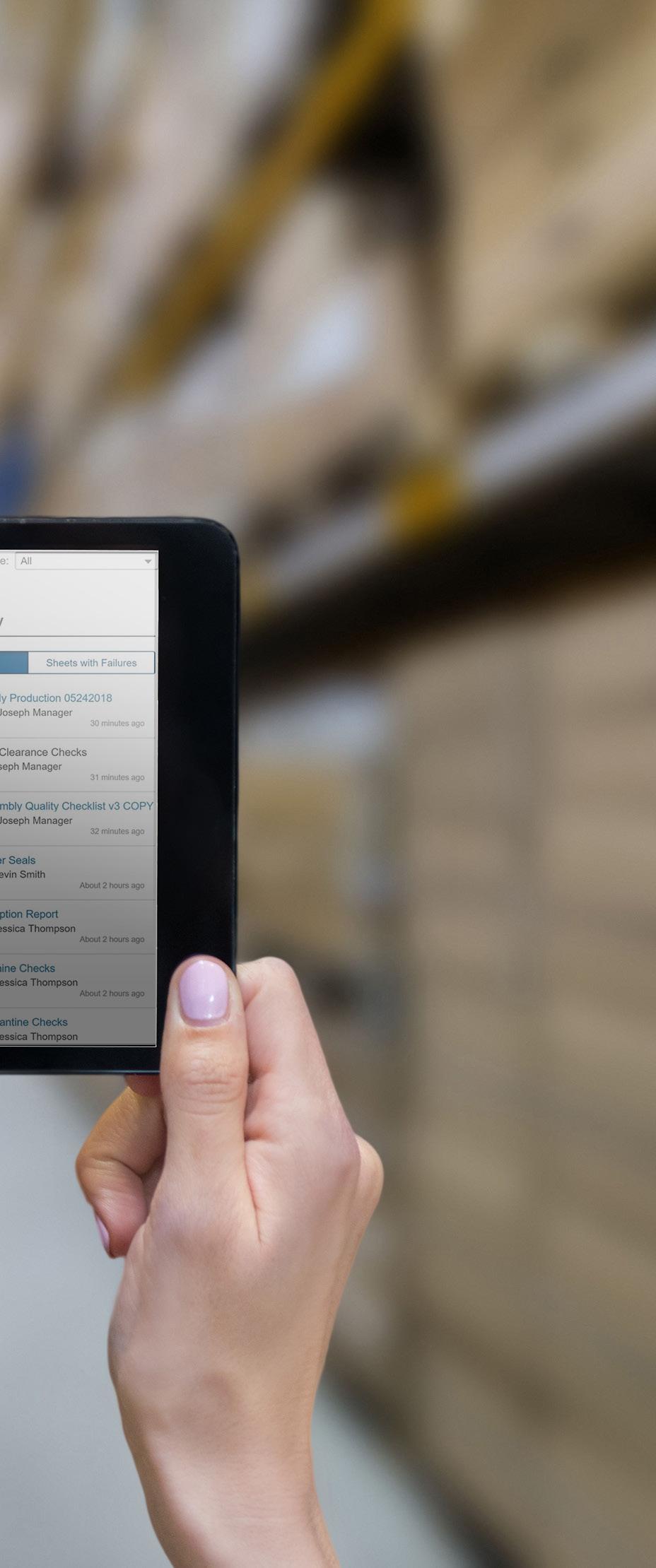
“OMP’s trusted Unison Planning is leveraged by US Fortune 500 companies such as Procter & Gamble, Dow and Johnson & Johnson”
Unison Planning, OMP’s innovative XAI-based solution optimises supply chain planning within an organisation, ensuring the alignment with its strategic goals and end-to-end visibility over the entire value chain. OMP’s trusted Unison Planning is leveraged by US Fortune 500 companies such

“Nulogy is run within the supply networks of leading brands such as L’Oréal, ColgatePalmolive and Church & Dwight”
as Procter & Gamble, Dow and Johnson & Johnson.
Nulogy is the only purpose-built multi-enterprise collaboration platform for supplier networks, and digitally enables brands and their external supplier networks to collaborate seamlessly on

a centralised, data-driven, AIenabled platform. Nulogy is run within the supply networks of leading brands such as L’Oréal, Colgate-Palmolive and Church & Dwight, as well as hundreds of supplier sites around the world.
Source: NulogyWelcome to our spotlight profile feature where we chat with leaders and innovators in the supply chain, procurement and logistics industries.
For our third In the company of… we sit down with Gerardo Aguilar, Global Head of Indirect Procurement at Syngenta Group.
A brief summary of what your company does and your role

Syngenta Group is a leading sciencebased agtech company. We help millions of farmers around the world to grow safe and nutritious food, while taking care of the planet. My role in Syngenta is to lead the Global Indirect Procurement function.


How did you start working in procurement?
Like most of my peers of a similar age, I discovered procurement along the way. My background is in industrial engineering, so I started working on efficiency programmes in factories. But in the 2000s, with the increased importance e-procurement tools, I joined Philips in the Netherlands to support the implementation of their e-procurement tool as an internal consultant. After that, I never left the function and have worked in procurement for more than 20 years for different multinational companies.
What has been the biggest highlight of your career to date?
The opportunity to work with so many talented people from different nationalities and backgrounds. Every single role that I had in my career has allowed me to interact with strong leaders, great colleagues and knowledge experts from whom I learnt a lot, and thanks to them I was able to grow not only professionally but also as a person.
Please could you tell us a little bit about the Procure360 Project and why you’re excited about it?
Procure 360 it’s our one-stop-shop data analytics platform that we have developed internally via a crossfunctional team in the last six months. It can answer queries going from Purchase Orders, Invoices, Payment Terms, Sustainability, eCatalogue penetration, Market Intelligence, etc. The platform was identified last year as a non-regret move as part of our IP Strategic Roadmap 2027. Today we have launched the first version of the tool which applies to all indirect procurement categories. The next steps will be to continue expanding the functionalities of the tool while making sure teams feel comfortable with it to support discussions with their stakeholders.
If you could spend a day in the life of another profession, what would it be and why?
I would choose a Sales Manager. It would be interesting to experience, from the other side, how they approach negotiations. I believe it would give me more insights to drive better outcomes.
Outside work, what helps you feel like the best version of yourself?
For me is very important to find time to disconnect and exercise. I don't have a single activity that I do all the time, I rather prefer to have different options and depending on my mood to choose one. One day it could be running on another it could be cycling or tennis – and some days just watching a movie is enough!
Before we go: what would you like to impart to our readers?
My message to the readers will be to make sure that they feel proud of what they do. It is very important for us to understand how we are adding value to the business with our day-today work. At least for me, that is what keeps me going.
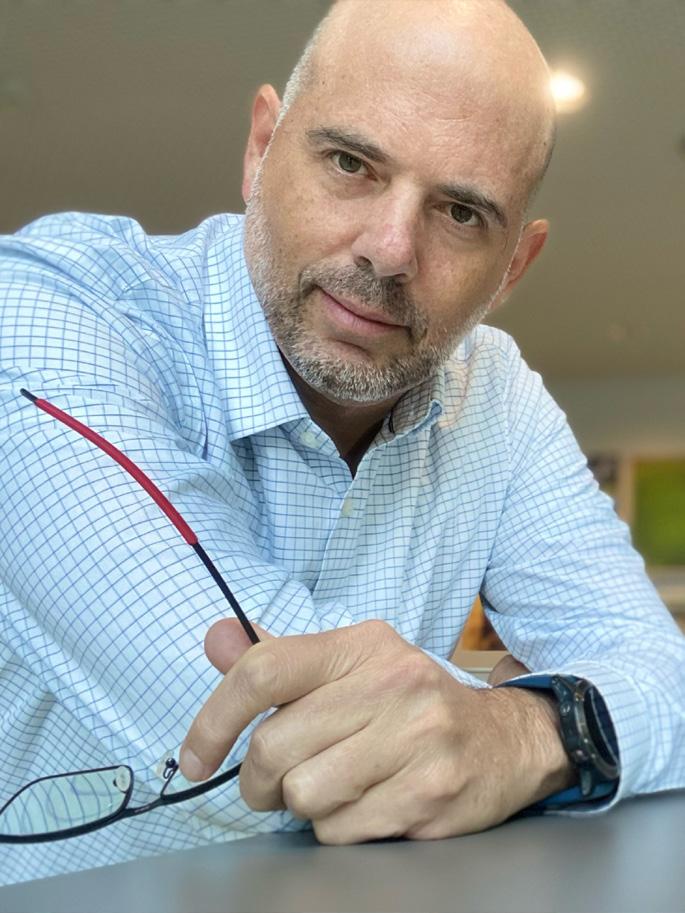
www. syngentagroup.com


Come together to learn from leading experts in the function and leave with a better understanding of how to approach value creation in times of polycrisis for procurement’s measures of success, future talent and technology.
